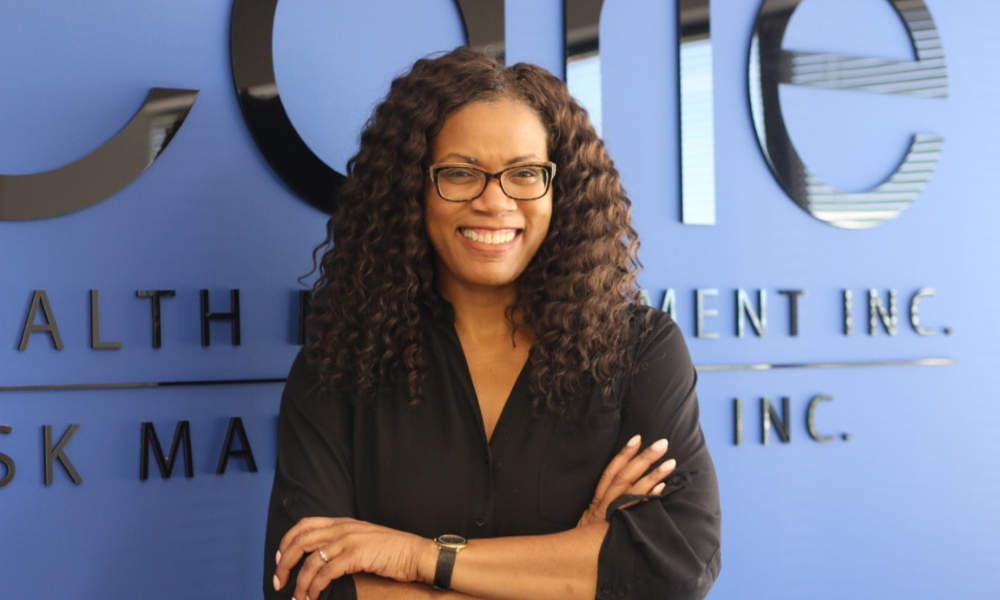A respectful approach, using external examples, and getting a mediator involved are all ideal topics, says CFP

It’s not easy to have the financial talk with aging parents. But as Canada’s demographic pyramid now looking inverted, with a bias towards seniors, those conversations are more vital than ever, according to one award-winning financial planner.
“It’s something that really became top of mind during the pandemic, I think, as many clients saw their parents, friends and other families face health crises,” says Jackie Porter, certified financial planner at Carte Wealth Management.
Carte Wealth Management was recognized as one of the winners for The Best Wealth Management Firms in Canada. Read the full report here.
As the Covid-19 crisis sparked emergencies for countless households, Porter says many of her clients quickly turned into private investigators as they tried to locate critical documents like wills, powers of attorney, and financial statements. Having realized the importance of planning for the worst what-ifs, more clients than ever are now determined to have financial conversations with their aging parents.
“The pandemic gave them a flash of what could happen in the future,” she says. “As they were in the throes of dealing with it, they recognized they weren’t ready or equipped to manage their parents’ care or finances.”
Take a tactful tack
Like any talk about money and mortality, it can be a hard subject to broach. Among clients at her practice, Carter says it’s common for parents to not want to divulge private financial details. Certain members of the older generation, she adds, tend to avoid money conversations in general, and much more so with their children.
“I think it feels intrusive to parents,” Porter says. “If people go to their parents saying ‘Let’s talk about me managing your finances or care,’ the parents might push back.”
One problem arises when clients try to introduce the topic from a cold start. As a rule, she recommends that clients approach the topic with as much tact and delicacy as possible. One option: start by talking about external situations.
“They could say to their parents ‘This happened to my friend’s mom the other day, and now she can’t find her mom’s bank information, and she’s worried they might lose the house because they can’t pay her bills. What would we do if we were in that situation?’” Porter says.
“Acknowledge to them that it’s uncomfortable to talk about, but emphasize that things can quickly take a turn for the worse, at which point they might not have the opportunity or wherewithal to give directions,” she says.
Respect aging parents’ agency
After decades of acting as authorities and providers, parents might find it hard to think of their adult children as anything other than their subordinates, which means even questions meant to help can come off as a sign of disrespect. To avoid that trap, Porter says clients can invite their parents to express what they would want to happen in case of an emergency.
“You’re asking them to think about a time when they’re not going to be in control, which isn’t always something that people want to talk about or accept,” Porter says. “I’d encourage people to ask their parents ‘Do you have a will? Do you have a power of attorney?’ and discuss things as a family, because the worst thing is to discover there’s an issue when you’re already in the hospital.”
For people who might struggle having these conversations, Porter says it’s worth considering bringing in a certified financial planning professional to talk with their parents.
“I think money conversations are easier if you can enlist a neutral third party like a certified financial planner to really talk about it on the whole,” she says. “That way, the discussion about the implications of not having these things in order, and what next steps can be taken, doesn’t necessarily feel as direct or confrontational.”
Even if clients exert their best efforts at having these conversations, that doesn’t mean their parents will do anything about it. The key, Porter says, is for clients to persevere and keep bringing the topic up.
“The parents might not be in the right place to hear it, or sometimes life just gets in the way of their following through,” she says. “Even if they don’t get it the first time, I’d urge clients to keep trying … it’s a worthwhile conversation to have.”



